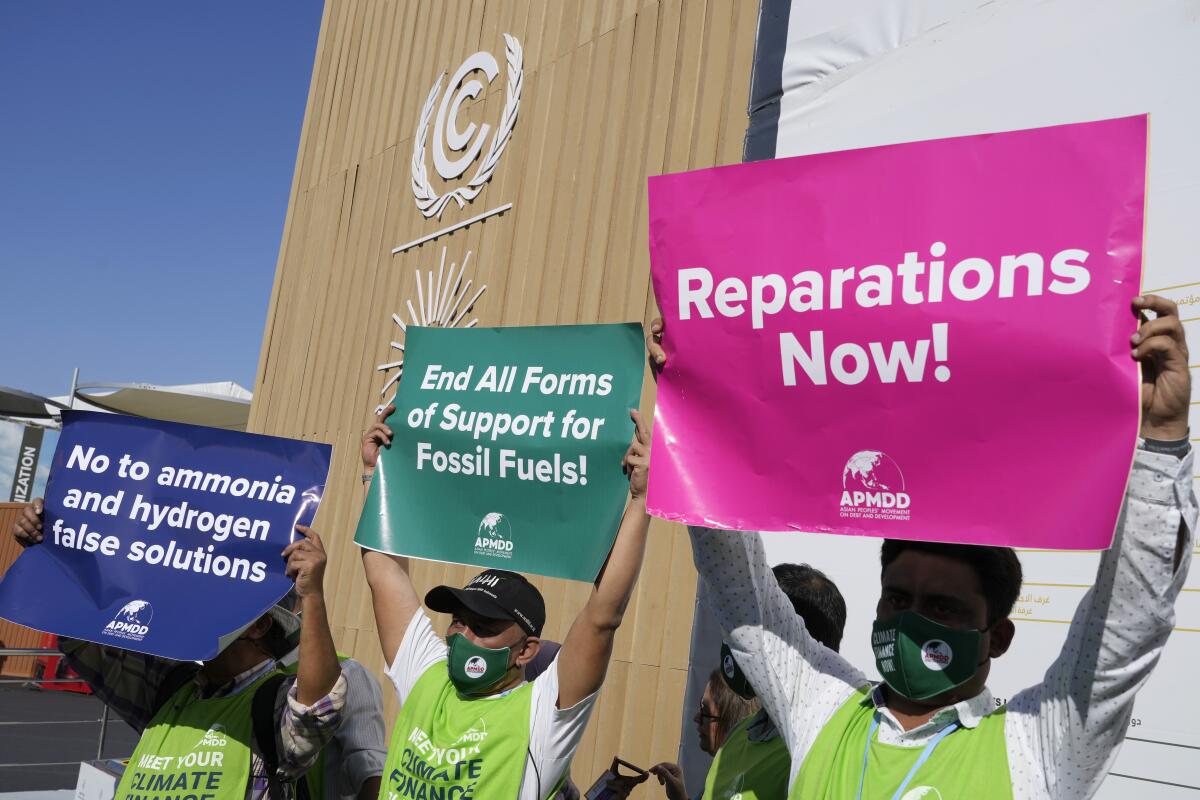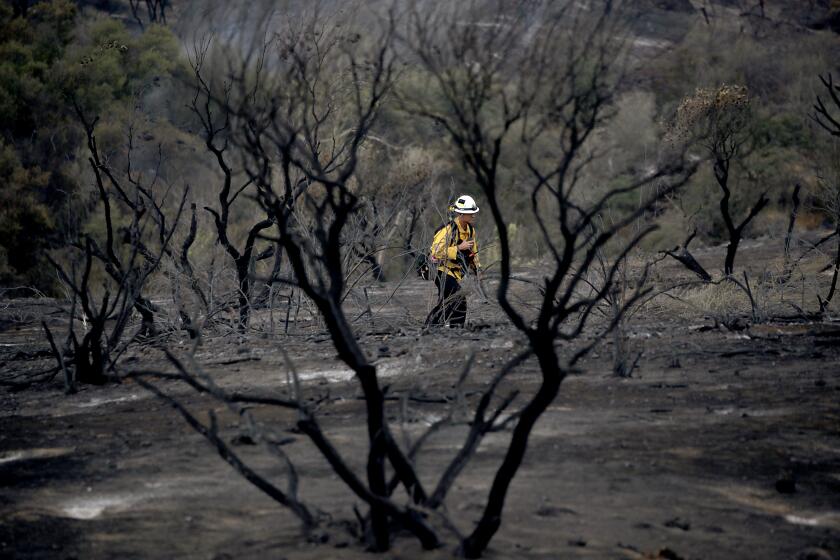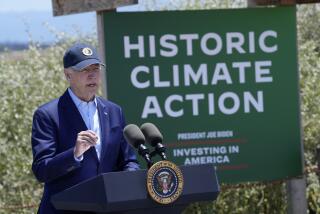Biden to tell global summit that U.S. climate measures won’t be reversed post-election

SHARM EL-SHEIKH, Egypt — President Biden is coming to international climate talks in Egypt this week with a message that historic U.S. action to fight climate change won’t shift into reverse, as happened twice before when Democrats lost power.
Current and former top climate officials in the Biden administration said the vast majority of the summer’s incentive-laden $375-billion climate and health spending package — by far the biggest law passed by Congress to fight global warming — was crafted in a way that would make it hard and unpalatable for future Republican Congresses or presidents to reverse it.
Outside experts agree, but say other parts of the Biden climate agenda could be stalled by a Republican Congress and courts.
Twice in the 30-year history of climate negotiations, Democratic administrations helped forge an international agreement, but when they lost the White House, their Republican successors pulled out of those pacts.
And after decades of promises at past climate summits but little congressional action, the U.S. for the first time has actual legislation to point to. The climate and health law, known as the Inflation Reduction Act, was approved without a single Republican vote, prompting some advocates to worry that it may not withstand GOP attacks if Republicans gain control of the House or Senate.
But preliminary results from Tuesday’s fiercely contested midterm elections suggest that, if Republicans take control of Congress, they won’t have a veto-proof majority, and even if a Republican takes over the White House in the next few years, the tax credits would be in place and spur industry, said Samantha Gross, head of climate and energy studies at the centrist Brookings Institution.
This year’s summit comes as climate change is worsening — but many leaders are skipping the event, arriving late or still deciding whether to show up.
“It’s a lot of tax credits and goodies that make it hard to repeal,” Gross said.
At the climate negotiations in Egypt, where Biden arrives Friday, his special climate envoy, John F. Kerry, said: “Most of what we’re doing cannot be changed by anyone else who comes to Washington because most of what we do is in the private sector. The marketplace has made its decision to do what we need to do.”
It’s all by design, said Gina McCarthy, who until recently was Biden’s domestic climate policy advisor.
“About 70% of the benefits of the Inflation Reduction Act are about [tax] credits that directly benefit” industries, McCarthy said in an interview with the Associated Press at the climate negotiations.
The issue of polluters paying for the climate messes they create around the world is likely to dominate difficult climate talks in Egypt this month.
She said it would be difficult for Republicans to “change the dynamic” to significantly undermine the act. “It is passed, is beneficial. We have Republicans all throughout the country actually doing ribbon cuttings.”
Studies show that most of the money and new jobs are going to Republican states, said climate policy analyst Alden Meyer of the E3G think tank. McCarthy and Kerry are “largely correct” in stating that the law can’t be rolled back, he said.
Several analyses, inside and outside the government, said the law would cut U.S. emissions by 40% by 2030, compared with 2005 levels, which is not quite the official U.S. goal of cuts of 50% to 52% by that time.
Republicans are likely to push for a sharp increase in oversight of Biden administration policies, including incentives for electric vehicles and loans for clean energy projects such as battery manufacturers, wind and solar farms and production of “clean” hydrogen.
Toward a more sustainable California
Get Boiling Point, our newsletter exploring climate change, energy and the environment, and become part of the conversation — and the solution.
You may occasionally receive promotional content from the Los Angeles Times.
Republicans support many of the tax credits approved under the climate law. But they complain that Biden is moving too fast to replace gas-engine cars with electric vehicles and say he hasn’t done enough to counter China’s influence on the renewable energy supply chain.
Even with a Democratic Congress, the Biden administration can’t dramatically increase climate aid to poor nations, a key issue here at the global climate talks. The rich countries of the world in 2009 promised $100 billion a year to help poorer nations switch to green energy sources and adapt to a warmer world. They haven’t fulfilled that promise, with the U.S. donating far less than Europe.
That money also doesn’t include reparations for climate-related disasters, the hottest topic at the climate talks. Dozens of protesters called for reparations at a demonstration Wednesday.
The U.S. government released a new draft report about what climate change is doing to America, determining that over the last 50 years, the U.S. has warmed 68% faster than the planet as a whole. Since 1970, the continental U.S. has experienced 2.5 degrees of warming, well above the average for the planet, according to a draft of the National Climate Assessment, which is the U.S. government’s definitive report on the effects of climate change.
The state report paints a stark picture of California’s escalating climate crisis and documents wide-ranging effects on weather, water and residents.
The changes in the U.S. reflect a broader global pattern in which land areas and higher latitudes warm faster than the ocean and lower latitudes, the report says.
The effects of human-caused climate change on the U.S. “are already far-reaching and worsening,’’ the draft report says, but every added amount of warming that can be avoided or delayed will reduce harmful effects.
The congressionally mandated assessment was last issued under the Trump administration in 2018. The Biden administration put out a draft of the newer version this week, seeking public comment and peer review. The final report is expected next year.
More to Read
Toward a more sustainable California
Get Boiling Point, our newsletter exploring climate change, energy and the environment, and become part of the conversation — and the solution.
You may occasionally receive promotional content from the Los Angeles Times.













